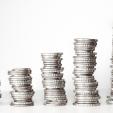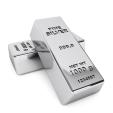Euro falls on talk of more unconventional policies
New York (Nov 20) The U.S. dollar rose against the euro Wednesday after a report that the European Central Bank is mulling a potential deposit-rate cut into negative territory for the first time if more economic stimulus is needed.
Meanwhile, investors continued to digest comments from Federal Reserve Chairman Ben Bernanke that emphasized plans to continue ultra-loose monetary policy in the U.S. even if a taper in bond purchases begins soon.
The ECB could cut the deposit rate by a smaller-than-usual amount to negative 0.1% from zero currently, according to Bloomberg News, citing people with knowledge of the debate. The US dollar fell to $1.3452 in recent trade from $1.3528 late Tuesday.
The report follows other comments about what the ECB could do if it decides additional stimulus is necessary. On Tuesday, ECB Vice President Vitor Constancio said the central bank had not discussed how quantitative easing would be implemented, but said it was still a possibility. Peter Praet, a member of the ECB’s Executive board, told The Wall Street Journal last week that negative interest rates or asset purchases were still options available to the central bank if needed.
“The bigger story is that we have an ECB that is facing a disinflationary environment with very low growth and a very limited tool kit,” said Camilla Sutton, chief foreign-exchange strategist at Scotiabank.
The possible move into more unconventional policies by the ECB could come as the Fed and Bank of England are moving away from their unconventional policies, she said.
“It opens up the door that monetary policy in the Europe and the U.S. diverge even further,” said Sutton. “The offset of the two creates an environment where euro should be moving lower” against the dollar, she added.
Investors also considered economic data. The U.S. consumer price index edged down by a seasonally adjusted 0.1% in October, signalling that there is little inflationary pressure. The drop was the first since April and was caused by lower energy prices. U.S. retail sales rose a seasonally adjusted 0.4% in October, the fastest pace since July, as consumers flocked to buy cars and trucks. Economists had expected overall retail sales to be flat, according to a MarketWatch poll.
The ICE dollar index, which tracks the greenback against six rivals, rose to 80.924 from 80.709 late Tuesday in North America. The ICE dollar index, which is heavily weighted toward the euro, moved higher intraday after the ECB report.
Bernanke’s remarks late Tuesday included a forecast that the Fed would keep its policy interest rate near zero well after the unemployment rate falls to 6.5%, the level previously tipped as prerequisite for tightening policy. While Bernanke is due to leave office early next year, his designated successor Janet Yellen is widely seen as likely to maintain the Fed’s current stance.
“In comments that largely echoed his likely successor, Janet Yellen, Chairman Bernanke said the economy was far from where it needed to be and that policy could remain very accommodative for long after the Fed wound down its monthly bond purchases,” said Omer Esiner, chief market analyst at Commonwealth Foreign Exchange Inc., in a note.
Bernanke offered no new guidance on when the Fed may begin to scale back its bond purchases. Minutes from the October Fed policy meeting are due today at 2 p.m. Eastern time.













